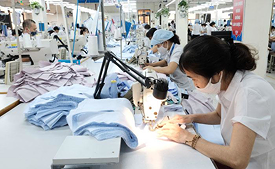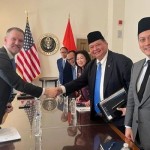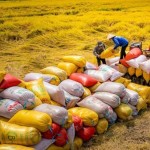Total number of posts 463.
 VKFTA, which became effective on December 20, 2015, is one of Vietnam’s first bilateral free trade agreements with an economic partner.
VKFTA, which became effective on December 20, 2015, is one of Vietnam’s first bilateral free trade agreements with an economic partner.
Vietnam and South Korea are scheduled to apply the revised Product Specific Rules (PSR) under the Vietnam-South Korea Free Trade Agreement (VKFTA), which establishes the rule of origin requirements for products from August 1.
This was one of the results of the 5th meeting of the bilateral Joint Committee on the implementation of VKFTA in late 2021, in which Vietnam’s Minister of Industry and Trade Nguyen Hong Dien and his South Korean counterpart Moon Sung Wook agreed on the revision of the PSR under the trade deal.
Under the agreement, the changes would be applied on August 1 after Vietnam and South Korea complete their internal procedures and inform others via diplomacy channels, affecting the majority of garment products under the category of 61.01 – 61.17, 62.01 – 62.12, and 62.15 – 62.17.
VKFTA, which became effective on December 20, 2015, is one of Vietnam’s first bilateral free trade agreements with an economic partner.
After seven years of implementation, trade and investment cooperation between the two countries has seen a big jump.
In 2021, bilateral trade turnover reached $78.1 billion, up 18.3% year-on-year, in which exports rose by 15% to $21.9 billion, and imports by $56.2 billion or 19.7%.
Vietnam’s imports from South Korea accounted for 17% of the country’s total import volume, while its trade deficit with South Korea stood at $34.2 billion, an increase of 23% year on year.
The Ministry of Industry and Trade noted in recent years, South Korea has been one of Vietnam’s major import markets with a high utilization rate.
In 2021, Vietnam’s total products exported to South Korea under preferential rates were estimated at $11.15 billion, or 50.82% of the total to the country, with the majority being seafood (94.78%), coffee (97.09%), pepper (96.02%), vegetable (89.67%), and wooden products (80.6%).
The ministry attributed the high utilization rate to the companies' deep knowledge of the rules of origin under the VKFTA, as well as their flexibility in application.
Source: Hanoi Times














